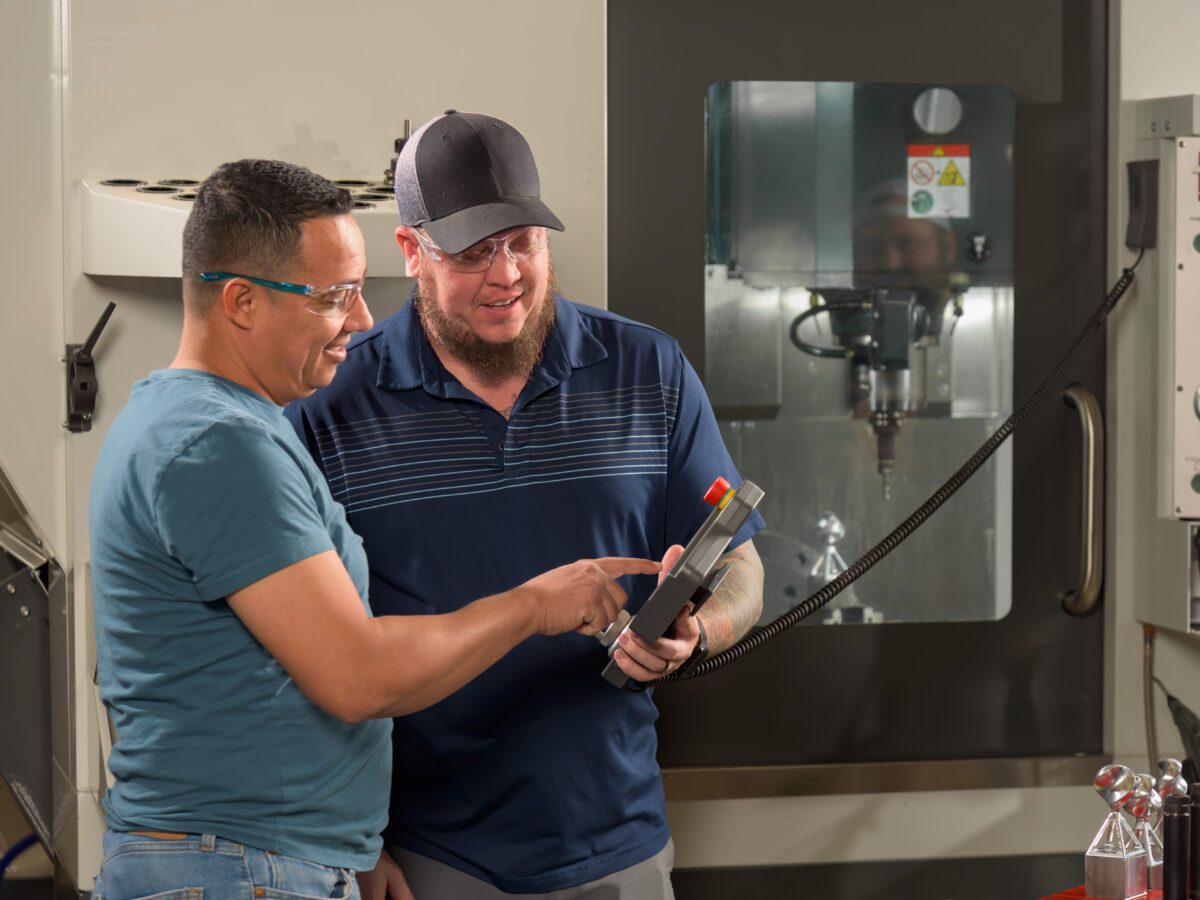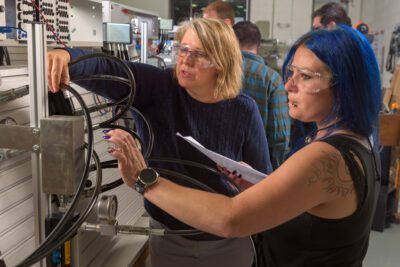

Advanced manufacturing shapes our world, and yet, the field doesn’t always get the appreciation it deserves. While manufacturing has modernized, public perception has been slow to keep up, and many don’t understand the full scope of how the field has evolved. As community college educators, we have a valuable opportunity to show students the plethora of opportunities that can result from pursuing an advanced manufacturing career.
Getting the full picture
The hard work of the previous generations has paid off: According to the National Institute of Standards and Technology (NIST), the United States remains the second largest manufacturing nation in the world, in terms of value added. In 2022, manufacturing added $2.3 trillion to the U.S. GDP.
Clearly, manufacturing is a vibrant, defining industry in our country. And it has continued to expand since the historic textile mills of the 1800s or the more recent automobile assembly lines of the mid-1900s. Per the NIST, the top manufacturing subsector in the U.S. is computer and electronic products — a cutting edge industry with some of the most sophisticated tools in the world — and this subsector is now competing for some of the world’s best engineers.
Despite these facts, old conceptions of manufacturing jobs are pervasive, as many students pursuing degrees still don’t see the field as attractive, and the stigma is passed down from their parents. The outdated idea of working long hours in a factory continues to turn off potential candidates.
While there is still progress to be made, public perception of manufacturing careers has been improving over the last five years, as shown by the Deloitte and The Manufacturing Institute 2022 Manufacturing Perception Study. This study includes data from a 2021 survey of over 1,000 Americans with varying levels of familiarity with the manufacturing industry.
Compared to a similar survey from 2017, the 2021 results show that more respondents are likely to encourage their children (or other young people) to pursue a career in manufacturing. There was a marked increase in respondents who see the industry as an innovative, creative field that employs talented workers with STEM degrees.
Additionally, those familiar with the industry felt that manufacturing jobs are safe, clean, well-paying, and stable at a higher rate than the unfamiliar group. This data exemplifies the importance of awareness when it comes to accurate perceptions.
Building the talent pipeline
So how can we, as educators, make the most of the shifting perceptions of advanced manufacturing to attract passionate students to our programs? Our main tactic should be to spread awareness. We should be sure to emphasize the following aspects of the industry:
Modern workplaces
We must disrupt outdated preconceptions by demonstrating how technological advancements have revolutionized the field and created a positive experience for workers.
Blue Ridge Community College skilled trade and advanced manufacturing instructor Jason Baxley said it well.
“The shift from traditional methods to more automated and technology-driven processes, such as robotics, artificial intelligence and 3D printing, has transformed the landscape,” Baxley said. “This evolution has led to increased efficiency, precision and customization in production processes.”
In addition to boosting production, technology such as robotics and artificial intelligence can make jobs safer for employees, according to the Deloitte study. Rather than replacing workers, these technological innovations are making the workplace better and increasing longevity for people in manufacturing jobs nationwide.
Career opportunities
Career success stories are everywhere. We must share these stories of our graduates and local employers, showing students the potential career paths — and opportunities for upward mobility — offered by the manufacturing industry. Here at Blue Ridge, we’ve seen our advanced manufacturing graduates go on to a wide variety of fulfilling careers.
“The skills gained through education in advanced manufacturing open doors to diverse opportunities across industries,” Baxley said. “Highlighting the interdisciplinary nature of manufacturing, showcasing success stories, and offering hands-on experiences, such as internships or industry collaborations, can give students a more realistic and appealing view of the field.”
A chance to make a difference
As a new generation enters the workforce, younger workers are making it clear that they want to choose a meaningful career. We should emphasize the broader mission and purpose that comes with joining a manufacturing program.
By learning these skills, our students are taking the first step toward solving the world’s problems, with the potential to impact the fields of medicine, renewable energy, government, education, and beyond.
An early introduction
For some, a passion for engineering, robotics, or other STEM areas can be sparked at a young age — long before a college credential is chosen.
“We offer summer camps for kids as young as sixth grade to learn about the different disciplines in the advanced manufacturing and skilled trade fields,” Baxley said. “We feel that the younger they are introduced to these fields, the more excited they are to pursue these pathways as they get older.”
The next generation of students is ready to learn, explore, and make a difference. Let’s seize the opportunity to show them how far they can go.


